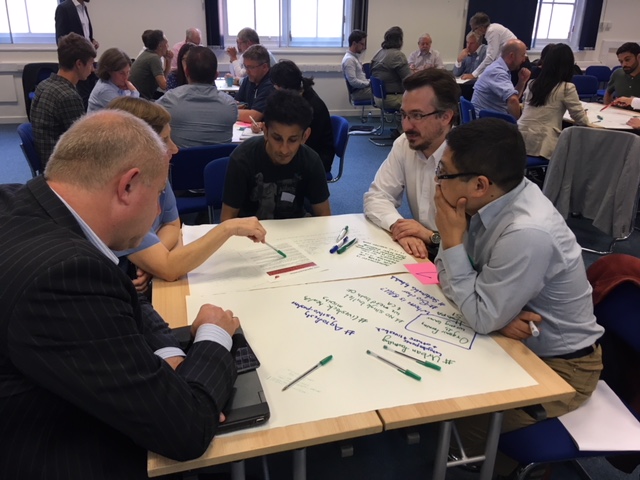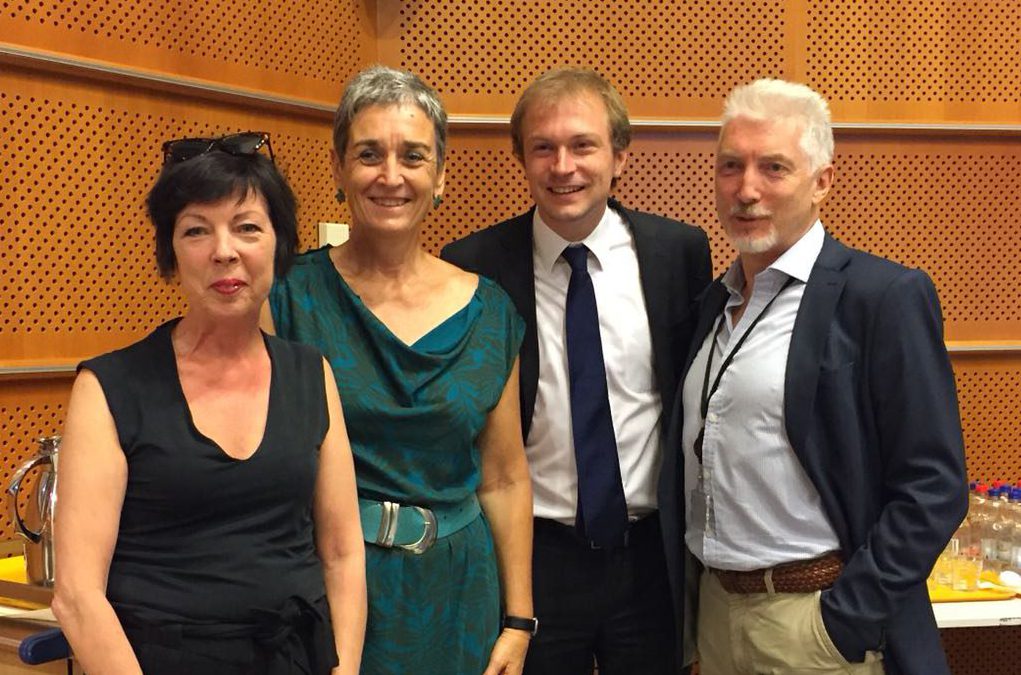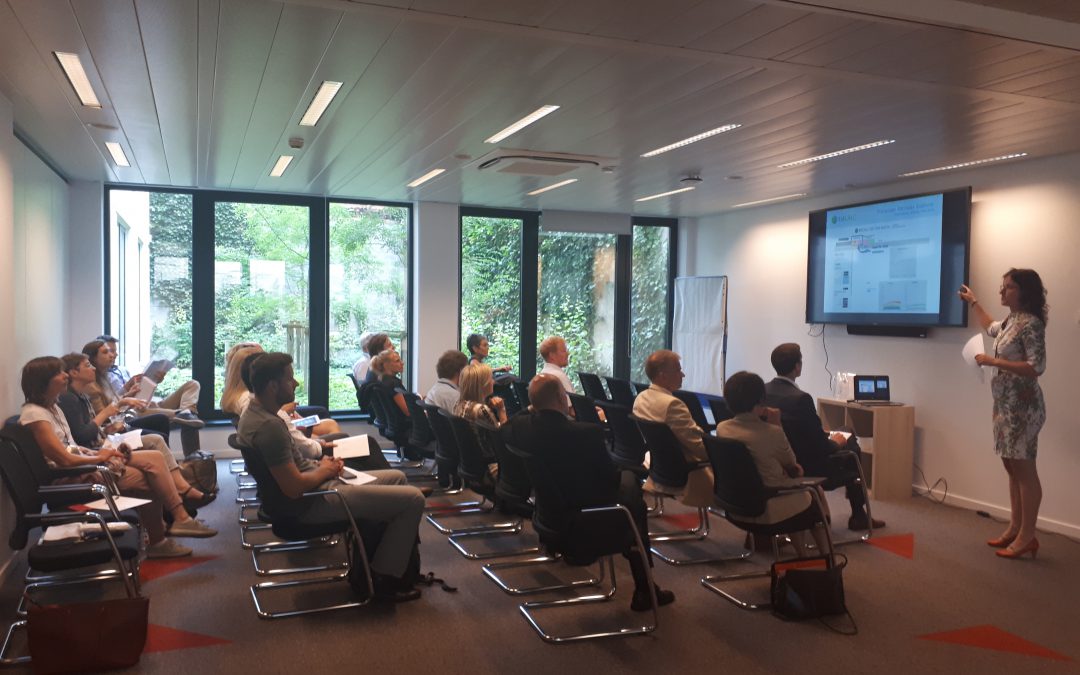
by Giorgio Bagordo | Sep 26, 2018 | Events, News
The latest EUCalc expert consultation workshop on “The future of land use, water and biodiversity in Europe” took place in London on the 19-20 September 2018 Hosted by the Imperial College London the workshop focussed on the Land, Water & Biodiversity module of...

by Giorgio Bagordo | Jul 2, 2018 | Events, News
(in the picture, from left to right, MEP Theresa Griffin, Ulrike Lunacek, Michel Cornet and Garret Patrick Kelly) SEE Change Net and Climact with the support of our Advisory Board member Ulrike Lunacek – ex EU MEP and Vice President of the EU Parliament –...

by Giorgio Bagordo | Jun 11, 2018 | Events
EUCalc is an EU-funded project that will build an innovative open source new model for a scientific underpinning of future CO2 emission scenarios and their societal, environmental and land use impacts. Halfway through the project, EUCalc launched the co-design...




